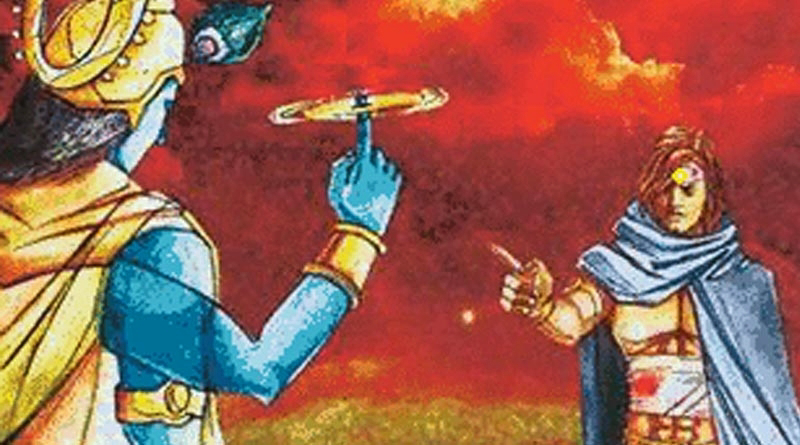Hare Krishna
Ashwatthama was the son of Dronacharya, the royal teacher of the Kuru princes, and played a crucial role in the Kurukshetra War, a major conflict in the Mahabharata. He was born with a gem on his forehead which give him power over all living being also it protected him from hunger, thirst, and fatigue. He was on the side of Kauravas.
After the war, Ashwatthama was filled with anger and grief over the death of his father and the destruction caused by the war. In a state of extreme distress and rage, he committed a grave act by targeting the sleeping Pandava camp during the night. He entered their camp and ruthlessly slaughtered the sons of the Pandavas, mistaking them for the Pandava brothers themselves.
When this heinous act was discovered, Ashwatthama was pursued and captured by the Pandavas. In response he confessed of killing Pandavas sons and said he will also kill Abhimananyu's unborn child so that Pandavas doesn't have any heir left, he used the most powerful weapon Brahmastra directing it to attack Uttara's womb (Uttara was the wife of Abhimanyu) . Krishna who saw this got very angry with Ashwatthama's act, as a punishment the gem (mani) on Ashwatthama's forehead was taken away, and he was cursed by Krishna that he will roam in the forest till the end of Kaliyuga with blood and puss oozing out of his injuries and cry for his death but death would not meet him.
The Curse of Ashwatthama serves as a moral lesson about the consequences of unchecked anger, revenge, and the misuse of power. It also highlights the concept of dharma (righteousness) and the karmic repercussions of one's actions. Ashwatthama's curse underscores the complexities of human nature and the profound themes explored within the Mahabharata epic.
For more such Mytho Facts Follow and Stay Tuned...
Radhe Radhe!!!

















